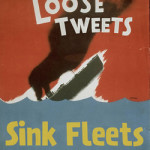Many of our examples suggest that clarity and excellence in thinking is very much like clarity and excellence in the display of data. When principles of design replicate principles of thought, the act of arranging information becomes an act of insight.
Month: July 2009
If you look after truth and goodness, Beauty looks after herself.
Reading: Rapt: Attention and the Focused Life
 Not since Mihaly Csikszentmihalyi’s book Flow, have I encountered such a good book about attention that, you guessed it, captured my attention. In Rapt: Attention and the Focused Life, Winifred Gallagher discusses the basic premise that you are what you pay attention to, or to be more precise, what you choose to pay attention to.
Not since Mihaly Csikszentmihalyi’s book Flow, have I encountered such a good book about attention that, you guessed it, captured my attention. In Rapt: Attention and the Focused Life, Winifred Gallagher discusses the basic premise that you are what you pay attention to, or to be more precise, what you choose to pay attention to.
She blends contemporary psychology with modern neuroscience to explain the phenomenon of attention, and debunk common misconceptions about things like multitasking–one second, off to check my twitter feed–ok, now I’m back–what was I saying–oh yeah, something about multitasking. Or was it attention. Get the idea?
Anyhow, the book is replete with cited studies and is well footnoted. Common themes around mindfulness meditation, effective “self-distraction”, and utilizing the “zone” bring the theoretical conversation back to day-to-day life and will undoubtedly make you look at your daily routine differently.
It turns out that Gallagher has also written about one of my other favorite subjects, how our surroundings can impact our thoughts and emotions in The Power of Place. My reading stack just got a little taller.
Gallagher, Winifred. Rapt: Attention and the Focused Life
Painters in the grand style were not concerned with style – they drew with clarity and rigor. Style was born from their work, and just as thought does not think about the sound of its voice nor even the rhythm, but creates them through its act – so they did not … Style must arise naturally from one’s attention to an object and it disappears as the awareness of this attention decreases.
The separation of the sciences and the arts is merely a matter of convention and convenience. But in thinking and acting, man transcends these categories which are simply particular acts. Each one implicitly contains the other.

